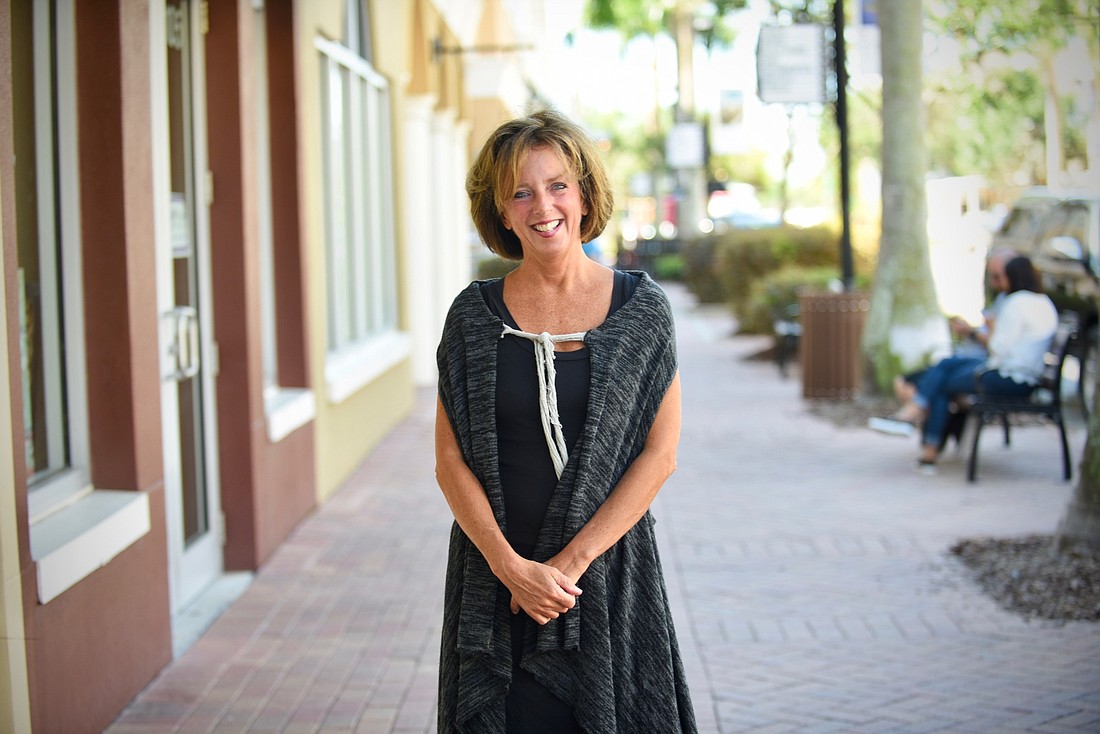- May 22, 2025
-
-
Loading

Loading

Retired U.S. Army Sergeant Eric Onstad, a Lakewood Ranch resident, knows a brain injury with a lifetime impact can happen in seconds.
In 2006, Onstad was stationed in Kabul, Afghanistan, when the base came under mortar attack. The first explosion knocked him unconscious. A buddy dragged him to cover when the second rocket hit — throwing them several feet. The impact was brutal. But he was alive and in one piece. He thought he was lucky — until the headaches and memory problems started.
“I tried to shake it off,” says Onstad. “But I couldn’t.”
In stoic military tradition, he kept it to himself — others had been killed in similar attacks.
“I figured I’d be OK in the days to come,” Onstad says.
But he wasn’t. The headaches and memory problems continued and didn’t stop when he returned to the United States in 2007. Despite what seemed like obvious symptoms, it took eight years before the Veterans Administration officially diagnosed Onstad with a traumatic brain injury (TBI). Unfortunately, that diagnosis hasn’t led to any treatment because specific treatment for his variety of TBI doesn’t exist. At least not yet.
Onstad isn’t alone. The Defense and Veterans Brain Injury Center (DVBIC) reports that 350,000 cases of TBI have been diagnosed in the United States military since 2000.
But brain problems aren’t limited to veterans.
The National Health Interview Survey estimates that 1.5 million Americans suffer traumatic brain injuries each year. The brain can also be compromised by drugs, alcohol, strokes, depression and Alzheimer’s. Many of these conditions exacerbate other conditions, including depression, addiction, learning disabilities and Parkinson’s disease. The human brain is complicated—and medical understanding of how it works is still primitive. There are more questions than answers.
That’s where the Brain Health Initiative at Lakewood Ranch comes in. It’s currently conducting a groundbreaking research project on the health of the human brain. The initial phase of the study is unfolding with a sample population right here in Lakewood Ranch. Beyond that, the initiative plans to establish a state-of-the-art brain health center in the community.
This project represents a collaboration between Massachusetts General Hospital (MGH), a Harvard Medical School teaching hospital, and the Academy for Brain Health and Performance (ABHP) in partnership with the community of Lakewood Ranch.
The ambitious initiative is the, er, brainchild of Stephanie Peabody, a neuropsychologist and the founder of the ABHP. The initiative follows the model of the Framingham Heart Study, a long-term, ongoing cardiovascular study that began in 1948. Much of the knowledge we take for granted regarding the heart flows from that study. Peabody hopes to accomplish the same goal with the human brain.
“Discovering the basis of brain health may be the most important medical challenge of our time,” says Peabody. “You can’t be healthy without a healthy brain. Yet, compared to the heart and other organs, we know so little about it.”
Erin Dunn, an epidemiologist and professor of psychology at MGH and assistant professor of psychology at Harvard Medical School, agrees, adding it could also flip the script on attitudes regarding mental challenges.
“Brain health-related conditions affect one out of every three people worldwide,” she says. “If we talk about this more openly, it would reduce the stigma that people with brain health challenges face.”
The initiative’s goal is revolutionary: develop new methods of diagnosing and treating neurological conditions but also create a “brain healthy community” to better understand and prevent those conditions from happening in the first place. Last spring, after visiting more than 10 potential locations, the initiative chose Lakewood Ranch to be that community.
“It’s is an ideal microcosm,” says Peabody. “The population is multi-generational, with a broad range of living situations. The community also has diverse, on-site resources to support the health and well-being of its residents, and a strong business, educational, and arts and cultural infrastructure.”
Peabody adds her firsthand knowledge of the area stems from her parents, 35-year residents of the Gulf Coast region and enthusiastic proponents of Lakewood Ranch.
Peabody says the study will be longitudinal, following participants across their lifetimes and proceed in three phases. The completed Phase I gathered preliminary survey data and clarified research parameters.
“Previous brain studies have targeted specific areas of concern: ADHD, Alzheimer’s, traumatic brain injury and so on,” says Peabody. “This survey looks at the whole picture. That includes everything from sleep cycles, social life and workplace habits, to faith and spirituality, and even diet.”
Phase II will comprise a pilot study, gathering brain health data from participating Lakewood Ranch residents. Initial survey results will be incorporated in Phase III — a long-term study of brain health over multiple generations of Lakewood Ranch residents. The results will be studied by a team of scientists, physicians, innovators and entrepreneurs at a new Brain Health Innovation Lab, possibly located within the walls of Lakewood Ranch’s CORE development.
Along with data, the initiative depends on fundraising. It’s starting off with a short-term goal of $1.6 million for the first three phases. Peabody is confident that this goal will be achieved and if so, the Brain Health Initiative will transform Lakewood Ranch into a global neurological research hub. In the process, it will make the community a model for the rest of the world to follow.
“I’m happy to say the community is responding,” she says. “We’re not there yet, and we need all the help we can get. But we’re off to a good start.”